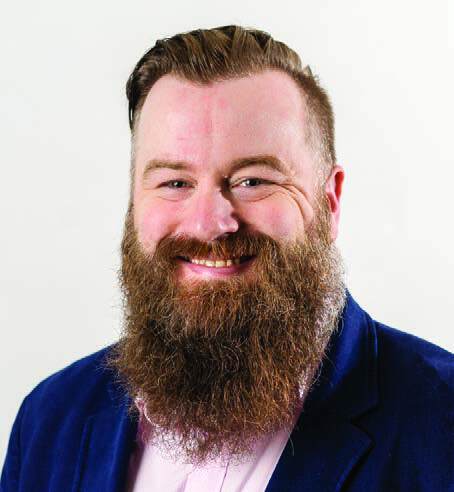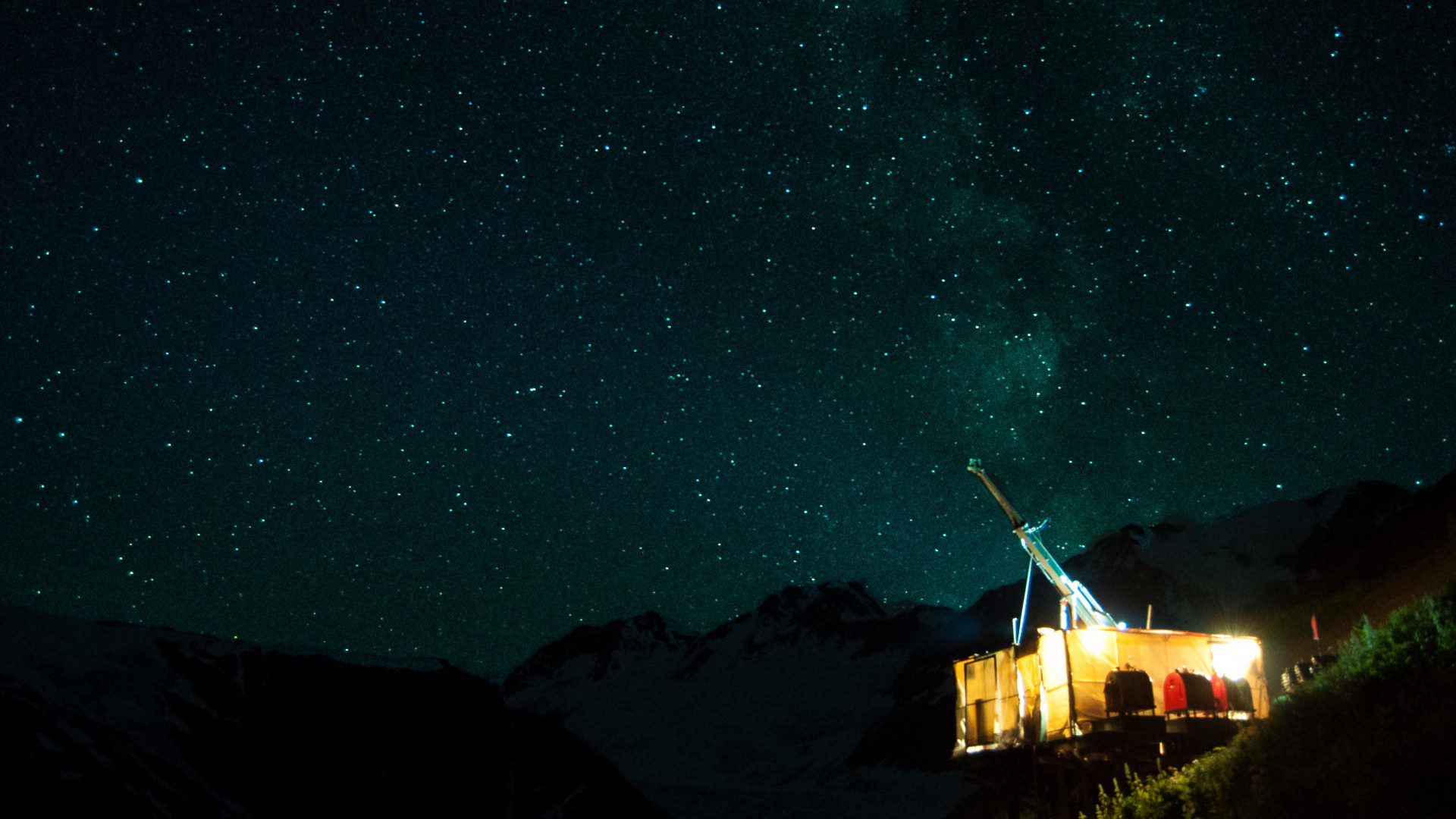
Walking home along an Edinburgh street one dark, snowy November evening in 2006, geologist Andy Randell received a life-altering phone call. A colleague at a Vancouver-based exploration company was looking for a geologist to log core on an exploration project in Guyana on South America’s North Atlantic coast. He needed an answer immediately, so Randell took a breath and replied, “Sure, why not?”
He quit his bar job that night and less than a week later, he found himself in a hotel in Georgetown, wondering how he came to be there. The next day, he boarded a tiny, leaking plane for a two-hour flight over the dense rainforest and touched down on a dirt strip. That first six-week stint reignited his lifelong passion for geology after a 10-year hiatus in other industries, and he hasn’t looked back.
“It’s completely nuts,” says the epically bearded Randell, P.Geo. “But I just say yes and make the best of every opportunity and challenge that comes my way.”
Today, Randell has swapped the Guyana jungle for a recently expanded office in downtown Vancouver where he runs a successful geological consultancy and two fast-growing initiatives: HIVE and Below BC. The “crowd consulting” model he has developed for HIVE is closing the gap between academia and industry by exposing students to real industry experience. His not-for-profit public outreach business, Below BC, is raising awareness of the rocks, minerals and resources in British Columbia and just launched an exciting new 360-degree digital geo archive online in January 2018. Despite his success, Randell still wonders how exactly he got here.
Young Andy
Randell says he “can’t remember not loving geology.” As a young boy growing up on the Isle of Wight off the south coast of England – also known as “dinosaur island” for its wealth of Cretaceous fossils – he spent his early childhood tramping across the island collecting fossils with his grandfather.
“My grandfather loved the outdoors,” says Randell. “He taught me to watch the tides and scamper up cliffs to look for fossils. I had about 500 fossils by the time I was 10, complete with map co-ordinates and notebooks full of descriptions.”
Randell’s passion for geology continued after his family moved back to mainland England near Portsmouth, where he scoured recently tilled neighbouring fields for fossil shark teeth, and drew cross-sections across the two old and tattered geology maps in the local library. But at university Randell “really struggled” and, although he scraped through to earn his geology degree, he ventured into other industries after graduating, including as a certified financial planner and a retail store manager. ‘
“Even though I wasn’t doing what I loved,” says Randell, “I gave it 100 per cent and learned skills that are particularly useful now, like managing people, projects and budgets.”
Back to Geology
After a decade away, Randell happily stepped back into his field boots and spent five years working in Guyana and Yukon, but he was soon up against the global commodity downturn. Out of work and frustrated by the industry’s inability to embrace change or to stem the tide of new graduates leaving the industry during the downturn, Randell created HIVE in 2014 to “close the gulf between university and industry” by adapting the crowd-sourcing business model to geological consulting.
Hive
HIVE assembles teams of students and underemployed recent graduates to work on geological consulting projects for companies under the careful guidance of a P.Geo., usually Randell himself. Using online collaboration tools, team members choose a part of the project to work on, contributing labour to the project and learning vital skills at the same time.
“When I take students in the field, I see a huge gap between what they learn at university and what the industry needs,” explains Randell. “Every season you get a new crew, and the first few weeks is training field skills. The impetus behind HIVE is to familiarize students with hands-on field skills, like how to take a soil sample or manipulate data using industry-standard software.”
Below BC
Randell’s passion for sharing geology extends beyond students. His other venture, Below BC, is a non-profit geoscience outreach organization set up in 2015 to develop in-person and online learning resources about the rocks, minerals and resources in B.C. Below BC has received an outreach education fund grant from AME for the last three years and has used it to develop face-to-face outreach and online learning resources, for both geologists and the public, reaching over 8,000 people at gem and mineral shows and outreach events around the Lower Mainland in 2017 alone.
In January 2018, Below BC launched the 360-degree digital geo archive project: an online collection of rocks and minerals that are displayed and can be manipulated in three dimensions. Using a camera, lighting and turntable like those used by retailers to display their wares online, Randell has taken high-resolution photographs of samples from collections gathering dust or hidden away in storage, including at AME and the Pacific Museum of Earth at UBC. The Smithers Exploration Group, Britannia Mine Museum, the BC Geological Survey, mineralogy groups and even personal collectors have expressed interest in participating.
Catalyst for Change
Randell was awarded the Bedford Canadian Young Mining Leaders Award from the Canadian Institute of Mining, Metallurgy and Petroleum in 2016 for his ongoing contributions to the industry. He joined the AME Board of Directors the same year to actively contribute his industry knowledge and passion for student mentorship and public outreach to the association.
“I don’t mind being a catalyst for these things,” says Randell. “It’s the industry I love, and I want others to be as interested and enjoy it as much as me. You just have to put some work into it.”
For now, Randell is funding these initiatives by reinvesting money he earned on consulting projects and with small grants from supporting organizations. In an industry reluctant to change quickly, he has found that it is easier to obtain funding by first proving the concept works.
“I was that kid who was into dinosaurs,” says Randell. “I never wanted to do anything else. This is my dream job.”
